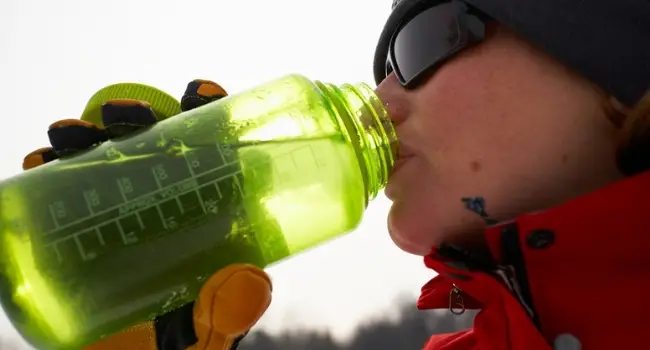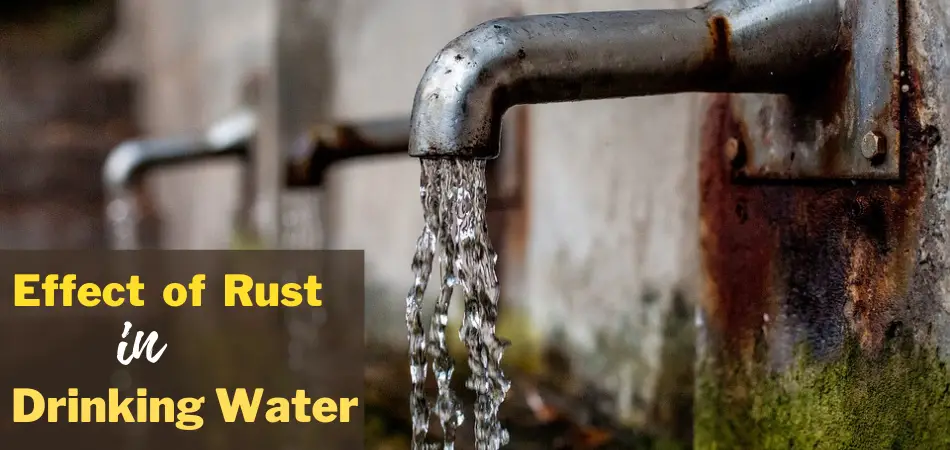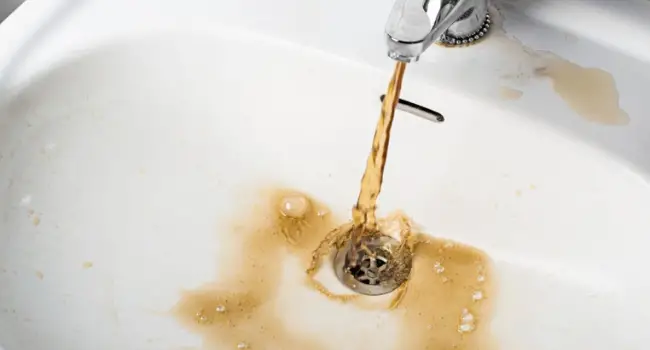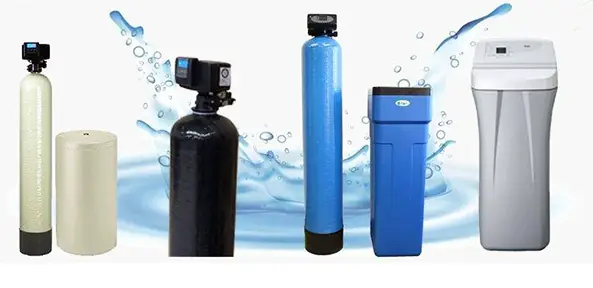The potential health problems related to human exposure to rust range from flu-like symptoms to skin irritation and even impairment of the nervous system. There are many different consequences possible, depending on the type and amount of rust that a person inhales, consumes, or comes into contact with. Therefore, what does rust water do to your body?
After ingesting rust water, it can damage your kidneys and possibly cause death. It causes the severe poison to your body. The rusty water can also affect your body by causing internal bleeding and severe diarrhea.
Also, the more rust, the more problems. Rust is mainly iron oxide, so if you are drinking water from a well with a large amount of iron in it, there will be a significant amount of rust.
The negative health effects of drinking water with high iron levels can include weakness and fatigue, stomach problems, vomiting, watery or bloody diarrhea, and discoloration in the toilet due to orange or red-colored waste caused by the rust.
Contents
Is Rust Water Bad for Drinking?
Drinking water that contains small amounts of rust might not be a problem, but doing that frequently can have some hazardous effects on your health.

If you must drink rust water, filter it thoroughly because it takes a tiny particle of rust to turn clean and colorless water into one with a brownish-orange color.
Effects of Rust in Drinking Water
Water is essential for body metabolism, and clean and refreshing water is a basic life necessity. Rust in water occurs often, especially if the pipe transporting the water is made of iron which rusts with time when exposed to water and oxygen.

Oxidized iron is a nutrient and so, little amount of rust in water will not harm the body. However, high amounts will make the water harmful and unattractive.
Here are some effects of rust in drinking water:
- A steady supply of iron: This is a good effect because the iron in rust water can be beneficial to the body. Iron is an essential body nutrient that when consumed, helps to transport oxygen into the bloodstream.
- Awful taste: The brown or orange color of rust water can make it look dirty and unattractive, but might not be harmful when consumed. However, if the rust is in excess, it will make the water have a bad taste which will make it unpleasant to drink.
- Bacteria: Over time, the presence of rust in water can make bacteria start gathering to live in the water, which poses a health risk if the water is eventually consumed.
How to Get Rid of Rust from Water?
Rust is the common name for iron oxide, a compound that forms when iron reacts with water and oxygen. The presence of rust in water can make the water turn brown or orange depending on the concentration.

Even though you might not get any bad effects from consuming rust in water, the look might be repulsive, and the taste and smell will be unpleasant.
To remove rust from water, use any of these three simple techniques:
Oxidizing Filters
You can install an oxidizing filter in your water line to remove rust from it. These oxidizing filters have a material that has manganese oxides coating on it, and these manganese oxide compounds convert the soluble iron compounds present in the water into insoluble iron compounds which can be filtered out of the water manually.
Note: These oxidizing filters are more preferable for treating water that has a pH value of at least 6.8 and a medium concentration of iron.
Water Softeners
Water softeners have sodium components that combine chemically with iron to remove rust from water. Simply connect an ion exchange water softener to your water supply to remove rust.

These water softeners are also useful in the removal of varieties of mineral compounds from hard water using ion exchange.
Note: Some water softener manufacturers recommend that the product should be only used on drinking water that has iron concentrations that are below 2 ppm (parts per million).
Sequestration
You can also add polyphosphates to your water supply using a chemical solution feeder to prevent rust. This polyphosphate contains phosphorus that is capable of dispersing the iron in water so that it won’t oxidize to form rust.
Note: This polyphosphate chemical feeder is more expensive than these other methods and is mostly used on well water.
Can Rust Water Cause Skin Problems?
Exposing your skin to water that contains a high amount of rust can increase your chances of developing skin diseases like acne. Iron contained in rust can damage your skin cells and clog your pores which will result in breakouts.

In addition, using rust water to bathe can dry out your skin because iron (rust) and soap cannot mix, so washing with water contaminated by iron can make soap residues deposit on your skin and cause itching and dryness.
frequently asked questions(FAQs)
Can Rust Stains on Skin Hurt?
Rust is an iron oxide, a compound that comprises iron and oxygen atoms. Having rust particles and stains on your skin does not have any health risk, and you cannot get Clostridium tetani, a bacteria that causes tetanus from it.
Is Iron Ingestion Safe?
Iron is a nutrient needed by the body in small amounts, to enable the red blood cells to function appropriately. Tiny debris of rusted iron in water may not be harmful, but frequent consumption of it can become a health risk.
Final Words
Drinking water that contains little quantity of rust might not harm you, but be careful not to do that often as it can turn hazardous to your health.
To be safe and avoid iron poisoning, filter your drinking water thoroughly to remove dirt and rust.

